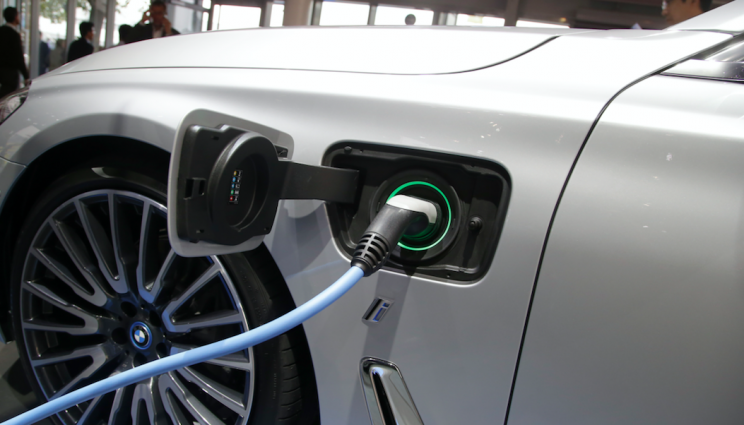Petrol and diesel ban is a 'smokescreen' which would cost TRILLIONS, warn motoring experts

The Government is facing a backlash from motoring experts over its announcement to ban all new diesel and petrol cars and vans from 2040.
Announced as part of efforts to tackle air pollution, the expected move follows similar plans announced in France this month amid increasing signs that the shift to electric vehicles is accelerating.
However, motoring experts have raised a series of concerns over the strategy, while former Labour leader Ed Miliband described it as nothing more than a “smokescreen”.
He tweeted: “Fear that new car petrol/diesel ban in 23 years time is smokescreen for weak measures to tackle 40,000 deaths a year from air pollution now.”
Fear that new car petrol/diesel ban in 23 years time is smokescreen for weak measures to tackle 40,000 deaths a year from air pollution now.
— Ed Miliband (@Ed_Miliband) July 25, 2017
Despite today’s announcement, the Government actually confirmed the policy two week ago.
MP Jesse Norman confirmed in a written statement on July 14 that: “This Government has a manifesto commitment for almost all cars and vans on our roads to be zero emission by 2050.
“We believe this would necessitate all new cars and vans being zero emission vehicles by 2040.”
Read more from Yahoo News UK
Man with 24 wives and more than 145 children is convicted of polygamy
Mystery of the Bermuda Triangle has ‘already been solved’
A nation of crooks: How many laws Brits break every day
The Government also made clear their plans in 2016 when the then Secretary of State for Transport Chris Grayling said: “Our ambition is for nearly all new cars and vans to be zero emission by 2040, and we are taking real steps to achieve this in the Modern Transport Bill.”
Experts from the motoring industry have reacted with caution over the clean air strategy.
Quentin Willson, former presenter of Top Gear, told Good Morning Britain the new measures would cost trillions.

He said: “You are going to have to get rid of 15 million diesel cars, you’ll have to change car factories, no more petrol stations, just think about what that’s going to do.
“I know it’s 23 years away, but it is going to be a huge bill for both industry and consumers.
“I have no problem with the ideology … the practicality of it is, will we in 22 years have the infrastructure, the lithium-ion batteries that will give us one charge that delivers 300 miles?
“Will we be able to actually support all this new technology which is as yet not proven?”
Jim Holder, editorial director of What Car? magazine, said it would be “a tall order” to increase the market share of electrified vehicles from 4% of new car sales today to 100% in just 23 years.

He said: ”The car industry has proved time and again that it can hit demanding targets, but at the moment electrified cars are both more expensive and less usable than traditionally-engined ones,” he said.
“These are hurdles that must be overcome to win over car buyers.”
Mr Holder said concerns over the charging infrastructure, the response of drivers to electric cars and the loss of billions of pounds of fuel duty meant “the risk is that this announcement creates more problems than it solves”.
The AA described the ambition to stop the sale of new petrol and diesel cars by 2040 as “a step in the right direction” but insisted there were “plenty of factors that need to be addressed”.

Roads policy spokesman Jack Cousens said that significant investment will be required to install charging points across the country, including fast-charge points so cars can be topped up within half an hour.
He predicted that the National Grid would be under pressure to “cope with a mass switch-on after the evening rush hour”.
Mr Cousens said affordability would play a key role in achieving the Government’s ambitions and families on low incomes would need assistance and incentives to make the switch to electric cars.
Steve Gooding, director of motoring research charity the RAC Foundation, said putting local authorities in charge of imposing restrictions on vehicles meant diesel owners “remain in the dark over where and when they will be able to use their cars and at what cost”.

Mike Hawes of the Society of Motor Manufacturers and Traders said the automotive sector could be “undermined” if the industry was not given enough time to adapt to the new policy.
He said: “Outright bans risk undermining the current market for new cars and our sector which supports over 800,000 jobs across the UK so the industry instead wants a positive approach which gives consumers incentives to purchase these cars.”
But Dale Vince, founder of Ecotricity, which runs a network of electric vehicle charging points, said changes in the industry would mean such a ban may not be needed.
He said: “The market will beat both governments (the French and British) to this, there won’t be any new petrol or diesel cars available to buy anyway by 2040.”
Top pic: PA

 Yahoo News
Yahoo News 

